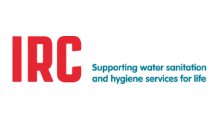Resource information
As cities expand, a key challenge is securing water supplies for urban populations and disposing of pollution while minimising impacts on peri-urban communities and the environment. This book describes the conflicts, dialogues and negotiations underway in peri-urban areas of many cities in the South.
Based on three case studies from Sao Paulo (Brazil), Cochabamba (Bolivia) and Chennai (India), it reveals how people and communities without good access to water and sanitation services depend upon alternatives to conventional service delivery from utilities, and explores how these arrangements can be supported. In particular, the case studies explore how stakeholders can be brought together to find better solutions to infrastructural development in peri-urban areas, and how research can provide information, tools and approaches to facilitate these processes.
The research is based on the Negowat project, a four year research initiative undertaken by a consortium of research and non-governmental organisations from Europe, Latin America and India.
The authors find that, there are several similarities as well as important differences across these three widely differing cities. They find that:
in each city, there are huge problems in service delivery to expanding populations in the peri-urban areas. These are probably insurmountable in the short term due to existing patterns of development in the cities
in each case, however, innovative, locally-inspired and alternative solutions have emerged to fill the gaps in formal systems
sometimes these have clear overall benefits such as the generally well-performing community-managed water systems in Cochabamba, but sometimes they are associated with severe negative impacts, for example, the over-exploitation and inefficiencies associated with private water markets and tankering in Chennai
in the three case study processes, researcher-initiated and supported negotiation processes were found to contribute to the search for less painful, less conflictive or more inclusive urbanisation.



